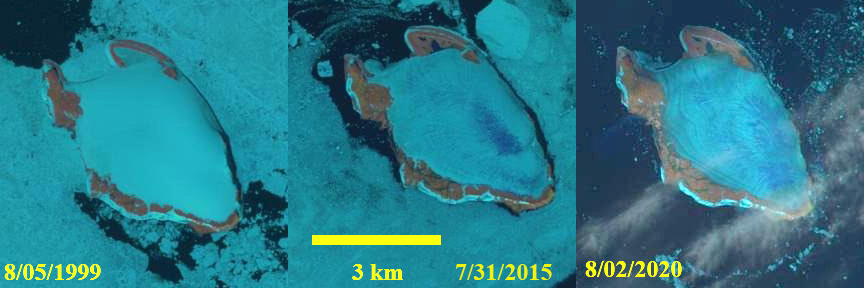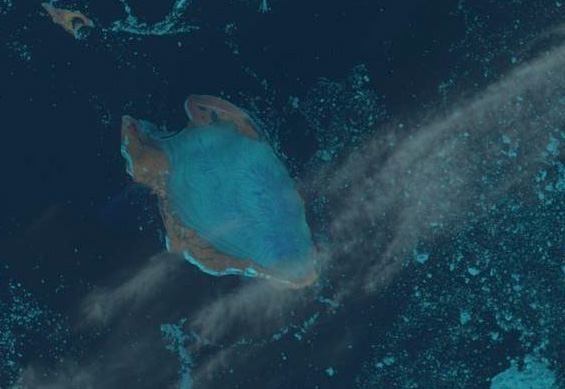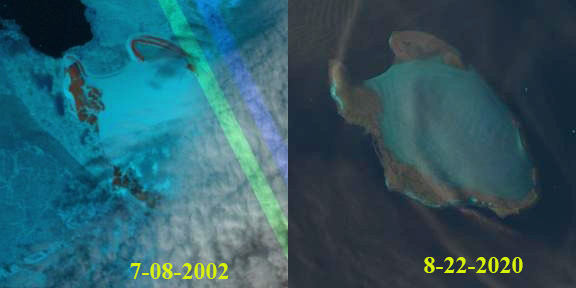August 27, 2020
Hochstetter Ice Cap Loses All Snowcover in 2020, Franz Josef Land
Posted by Mauri Pelto
Landsat images from 1999, 2015 and 2020 of Hochstetter ice Cap. Snowcover=100% in 1999, 80% in 2015 and 0% in 2020.
Hochstetter Ice Cap covers most of Hocstetter Island (Ostrov Khokhshtettera) in the the southern part of the Franz Josef Land archipelago. Situated ~1000 km from the North Pole this area is known for its white ice caps and cold summer temperature averaging 2 C. The lack of sea ice in the region is exposing the marine margins of the ice caps in Franz Josef Land to enhanced melting. This has and will lead to more coastal changes and island separations (Ziaja and Ostafin, 2019), such as occurred on Hall and Littow Island. Here we examine Landsat imagery from 1999-2020 to reveal changing snowcover. The summer of 2020 featured record low sea ice in the Barents Sea by mid July (NSIDC, 2020), due to the Siberian heat wave this past spring which led to early ice retreat along the Russian coast.
In early August 1999 the island is mostly surrounded by sea ice and the ice cap is fully snowcovered. In July 2000 and 2002 the situation is similar with insignificant exposed ice. At the end of July 2015 the island is mostly surrounded by sea ice, while the island is largely snowcovered there are meltwater saturated blue areas on the ice cap. On August 2, 2020 there is no snowcover on the ice cap and very limited sea ice around the island. Three weeks later on August 22, 2020 the ice cap remains bare of snowcover and is hardly the bright white that the area is known for. This period of extensive ice exposure leads to significant ablation of the exposed darker and older glacier ice leading to a large mass balance loss and glacier thinning.
Hochstetter Ice Cap in early August 2020 has lost all of its snowcover and has little sea ice in the vicinity. The blue coloration to the ice cap indicates meltwater is present.
Landsat images from 2002 and 2020 of Hochstetter ice Cap. Snowcover=100% in 2000 and 0% in 2020.





 Dean of Academic Affairs at Nichols College and Professor of Environmental Science at Nichols College in Massachusetts since 1989. Glaciologist directing the North Cascade Glacier Climate Project since 1984. This project monitors the mass balance and behavior of more glaciers than any other in North America.
Dean of Academic Affairs at Nichols College and Professor of Environmental Science at Nichols College in Massachusetts since 1989. Glaciologist directing the North Cascade Glacier Climate Project since 1984. This project monitors the mass balance and behavior of more glaciers than any other in North America.